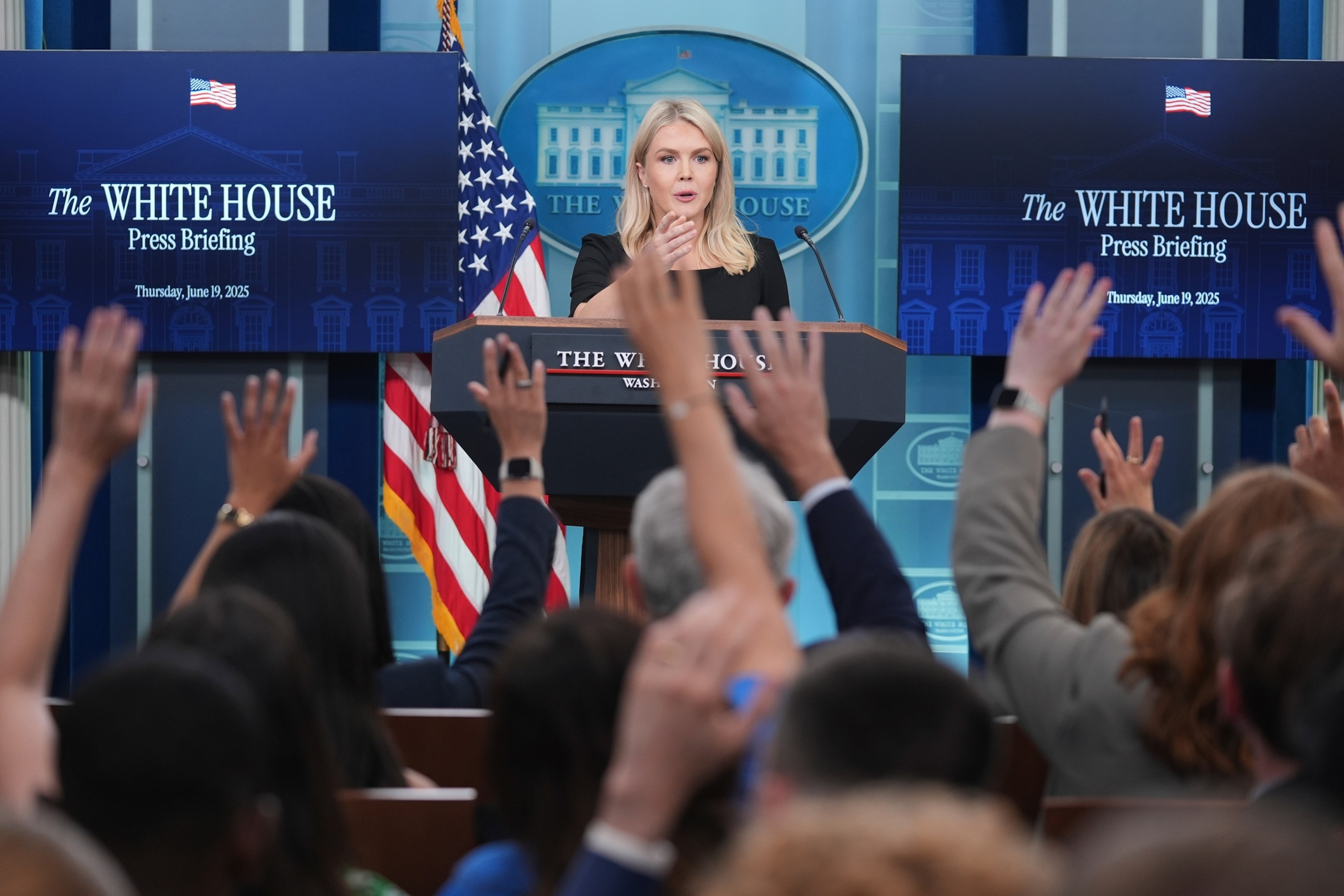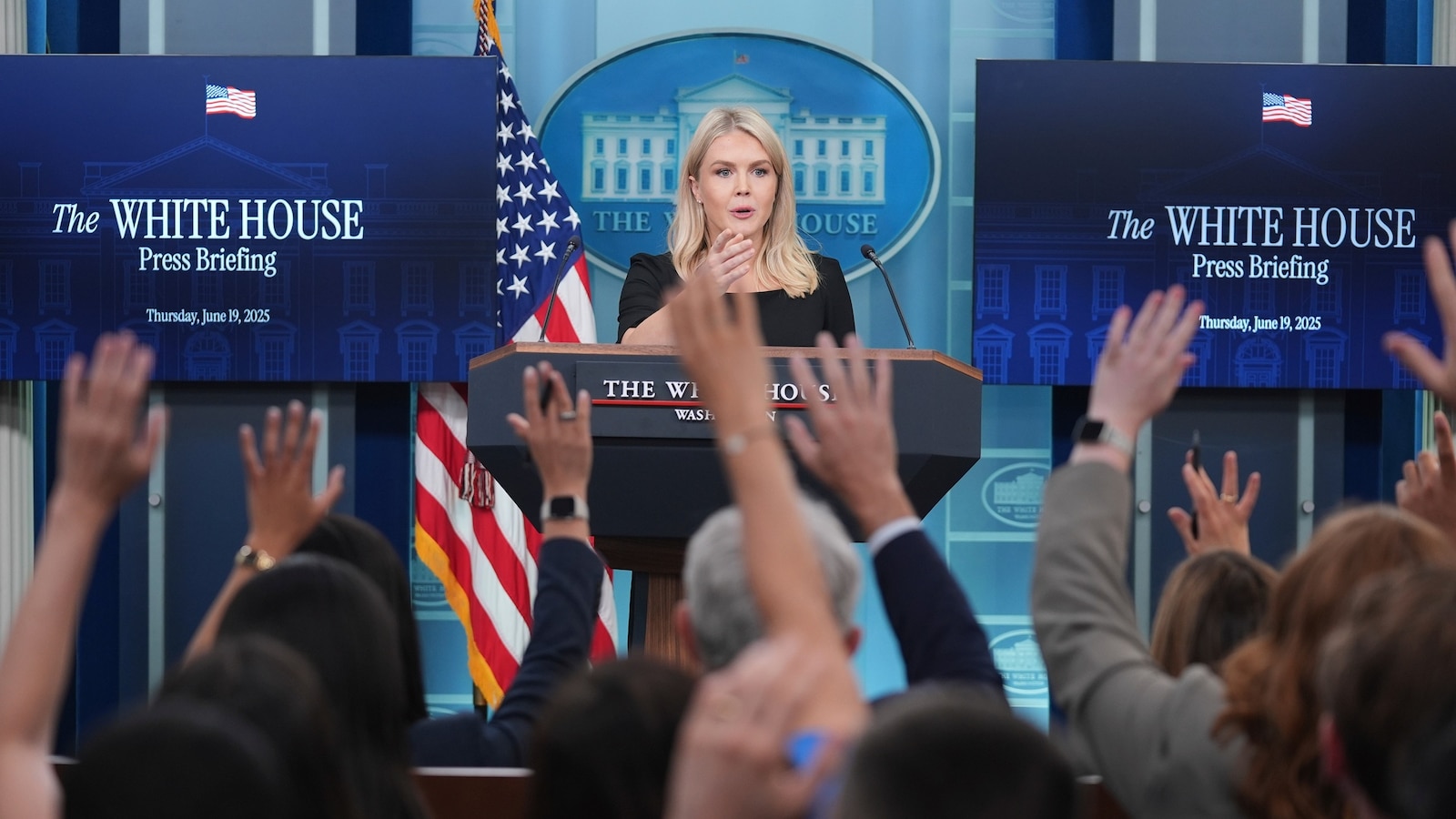The White House on Thursday stated definitively that Iran has all it needs to produce a nuclear weapon in “a couple of weeks” once given the go-ahead from Ayatollah Ali Khamenei.
“Let’s be very clear, Iran has all that it needs to achieve a nuclear weapon,” White House press secretary Karoline Leavitt said at her briefing. “All they need is a decision from the supreme leader to do that.”
“And it would take a couple of weeks to complete the production of that weapon, which would, of course, pose an existential threat not just to Israel but to the United States and to the entire world,” she continued.
How close Iran is to developing a usable nuclear weapon has been at the center of the Israel-Iran conflict, with continuing debate over potential “breakout time” once the nation has stockpiled enough weapons-grade enriched uranium.
The last time the U.S. officially publicly gave a breakout timeline was in July 2024 when then-Secretary of State Antony Blinken said it would take Iran one to two weeks to enrich enough uranium of 90% purity to get the fissile material needed for a nuclear weapon.
“Once you’re at 60 [percent enrichment], you’re 90% of the way there. You are, in essence, a threshold nuclear weapons state, which is what Iran basically has become,” Secretary of State Marco Rubio said in an interview last month.
But if were to produce enough weapons-grade uranium, most experts estimate it would take Iran between several months to two years to actually make a deliverable nuclear warhead.
Decision on attacking within two weeks, Trump says
All eyes are on what Trump will do next as Israel and Iran continue to trade strikes, which Israel said it will intensify after Iranian missile hit a hospital in Beersheba.
The White House said on Thursday he would make a choice on whether to take military action against Tehran within the next two weeks.
“‘Based on the fact that there’s a substantial chance of negotiations that may or may not take place with Iran in the near future, I will make my decision whether or not to go within the next two weeks.’ That’s a quote directly from the president for all of you today,” Leavitt said.

White House press secretary Karoline Leavitt speaks during a press briefing at the White House, June 19, 2025, in Washington.
Evan Vucci/AP
Trump’s met with advisers in the Situation Room three times this week after departing the G7 summit early due to tensions in the Middle East. He approved attack plans presented to him but was waiting to see if Iran would be willing to negotiate and hasn’t made a final decision, sources familiar with the matter told ABC News.
He’s set for another Situation Room meeting on Friday before attending a private fundraiser that night in Bedminster, New Jersey, before returning to the White House Saturday afternoon where he will get more intelligence briefings that evening and Sunday evening.
A source familiar with the intelligence said the chairman of the Joint Chiefs of Staff said not to take action until U.S. assets are in a better position in the region. The U.S. is in the process of moving the USS Ford aircraft carrier to the Mediterranean. The source also said Trump wanted to know whether a 30,000-pound bomb made by the U.S. would be successful in destroying Iran’s nuclear capabilities.
Leavitt said that Trump’s decision would be partly based on his “instincts” as he faces different pressures from all sides, including a split in his Republican base between isolationists and Israel hawks.
“Look, the president hears all voices across the country, and he makes decisions based on his instincts,” Leavitt said. “And he has always said diplomacy is his first option.”
ABC News Chief White House Correspondent Mary Bruce asked Leavitt what made Trump believe there’s a substantial chance for negotiation, but Leavitt declined to lay out his thinking.
“I’m not going to get into the reasoning and the rationale,” she said. “The president believes that, but that’s his position and he will make a decision within the next two weeks.”
The White House said correspondence has continued between the United States and the Iranians, though it wasn’t tracking whether U.S. Special Envoy to the Middle East Steve Witkoff would attend talks in Geneva between European leaders and the Iranians.
Meanwhile, Israel on Thursday made strong statements saying Iran’s supreme leader cannot continue to “exist” — prompting questions of whether Israel now wants regime change in the Iran. Leavitt was asked on Thursday whether the U.S. would get involved in such a scenario.
“The president’s top priority right now is ensuring that Iran cannot obtain a nuclear weapon and providing peace and stability in the Middle East,” Leavitt said.
ABC News’ Chief Global Affairs Correspondent Martha Raddatz contributed to this report.

